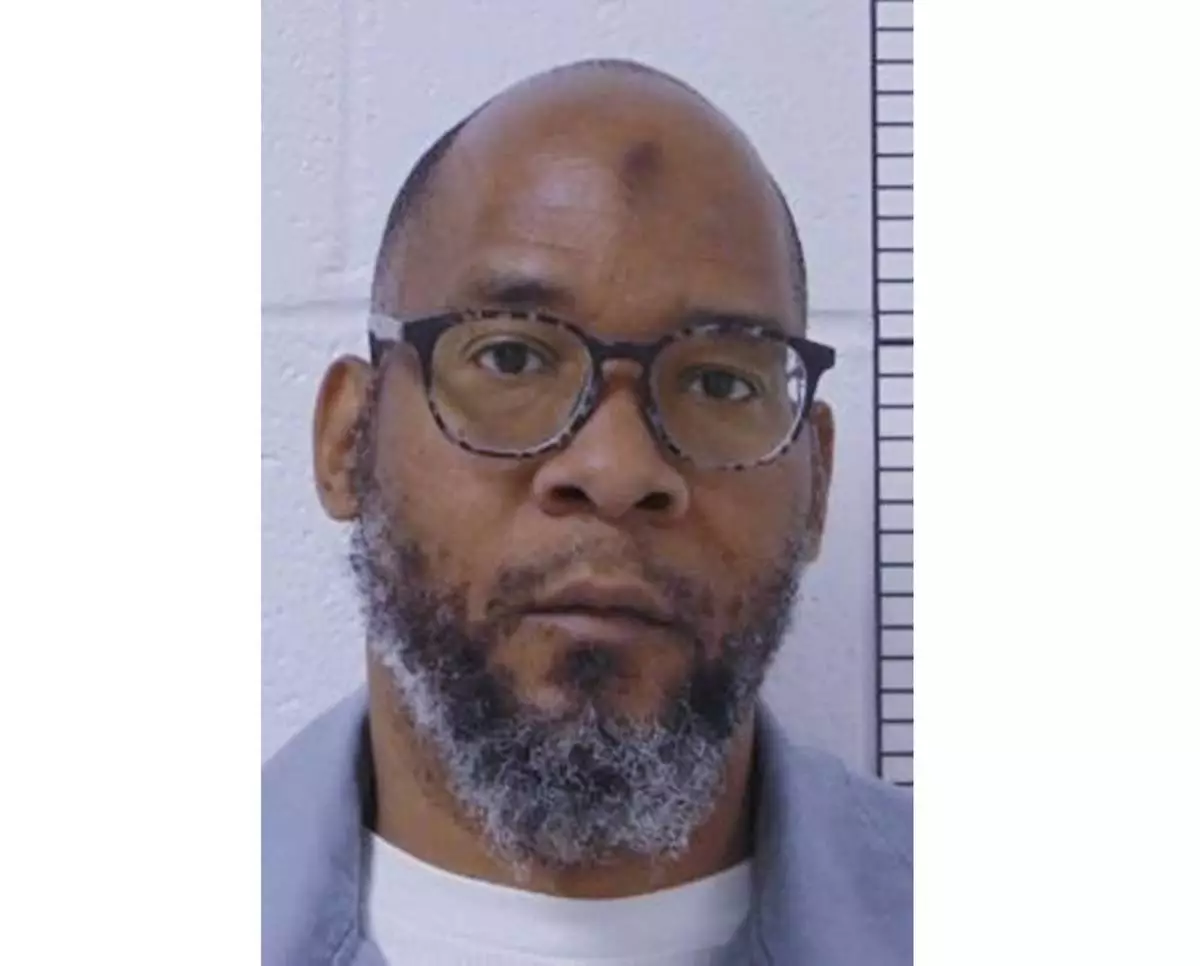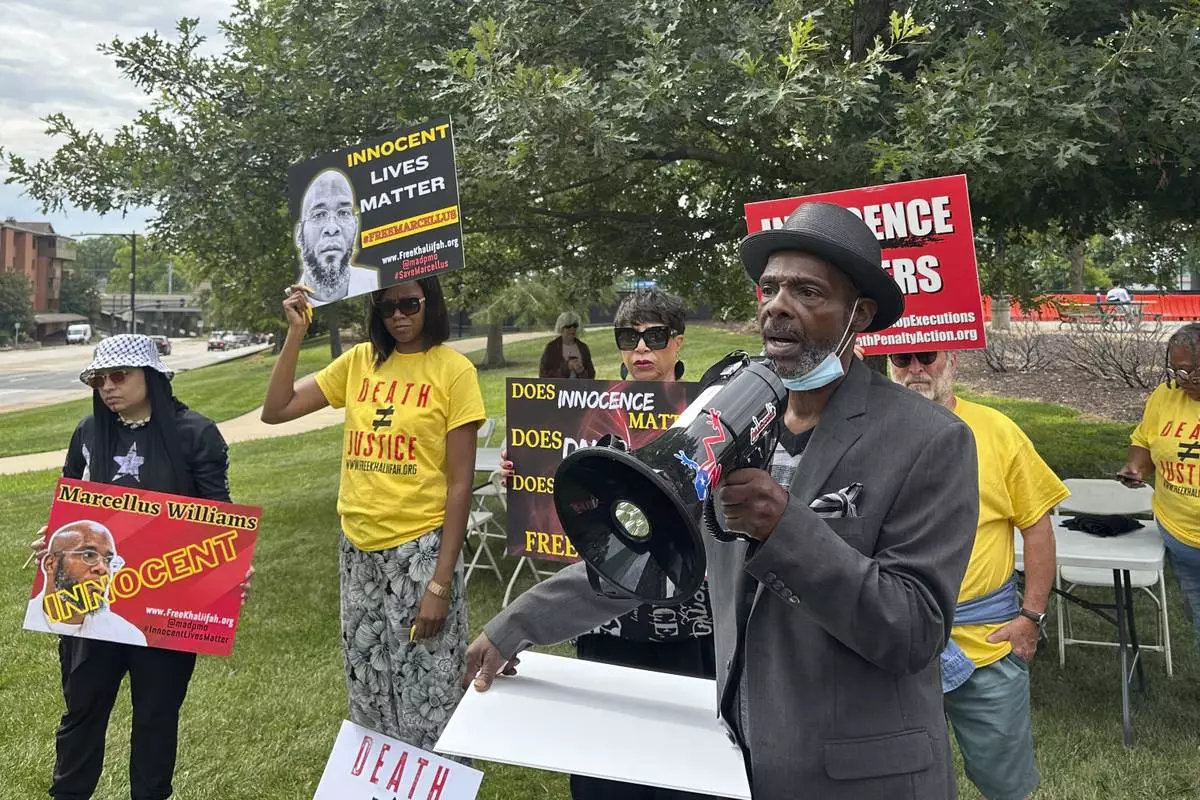TALLAHASSEE, Fla. (AP) — Some Florida school districts are rolling back a more comprehensive approach to sex education in favor of abstinence-focused lessons under pressure from state officials who have labeled certain instruction on contraception, anatomy and consent as inappropriate for students.
Officials from the Florida Department of Education, led by an appointee of Republican Gov. Ron DeSantis, have been directing some of the state's largest school districts to scale back their lesson plans not only on sexual activity, but on contraceptives, human development, abuse and domestic violence, as first reported by the Orlando Sentinel.
The shift reflects a nationwide push in conservative states to restrict what kids can learn about themselves and their bodies. Advocates are concerned that young people won't reliably be taught about adolescence, safe sex or relationship violence at a time when sexually transmitted infections have been on the rise and access to abortion is being increasingly restricted.
Under recent changes to state law, it’s now up to the Florida Department of Education to sign off on school districts’ curriculum on reproductive health and disease education if they use teaching materials other than the state’s designated textbook.
About a dozen districts across Florida have been told by state officials to restrict their sex ed instruction plans, said Elissa Barr, a professor of public health at the University of North Florida and the chair of the Florida Healthy Youth Alliance, which advises school districts on developing and implementing comprehensive sex education programs.
Barr says comprehensive sex ed isn't just about reducing teen pregnancy and protecting young people against HIV, at a time when Florida is reporting more HIV diagnoses than almost any other state, according to health policy research nonprofit KFF.
“Sex ed is sexual abuse prevention. It’s dating violence prevention. And it just helps young people develop healthier relationships and actually delay sexual initiation,” Barr told The Associated Press. “We still have 1 in 4 teens pregnant at least once before age 20. So for us to cut contraceptive information and education is really doing young people a disservice. It’s very harmful.”
Research has shown that comprehensive sex ed is associated with teens waiting longer to have sex for the first time, as well as reduced rates of teen pregnancy and STIs and the prevention of sexual abuse.
A spokesperson for the Florida Department of Education defended the state's approach, highlighting the importance of abstinence and recent changes to state law that require schools to teach that “reproductive roles” are “binary, stable, and unchangeable.”
“Florida law requires schools to emphasize the benefits of sexual abstinence as the expected standard and the consequences of teenage pregnancy,” department communications director Sydney Booker said. "A state government should not be emphasizing or encouraging sexual activity among children or minors and is therefore right to emphasize abstinence."
In Broward County Public Schools, which includes Fort Lauderdale and is the nation's sixth largest school district, state officials told the district that pictures of reproductive anatomy and demonstrations on how to use contraceptives “should not be included in any grade level," according to a staff memo that was shared with the AP.
Florida Department of Education officials also told the district to remove the words “abuse, consent, and domestic violence” from a proposed lesson for first graders and replace it with language that's considered more age-appropriate, such as “talking to a trusted adult when they feel uncomfortable.”
Barr said the concerns expressed about curriculum were “inconsistent” from district to district and were communicated verbally, not over email.
A representative for Orange County Public Schools, which includes Orlando, said the district revised its teaching plans in response to “verbal feedback” from the department.
“FDOE strongly recommended the district utilize the state adopted text,” district spokesperson Michael Ollendorff said.
Under Florida law, schools don't have to teach sex ed. If they do offer lessons, they must emphasize abstinence as the “expected standard." Florida parents have the right to opt their students out of that instruction, though surveys show the general public overwhelmingly supports schools teaching sex ed.
“Take politics out of it, take religion out of it and really focus on the science and what works for young people," Barr said. “We have the answer, and it’s comprehensive sex ed.”
Kate Payne is a corps member for The Associated Press/Report for America Statehouse News Initiative. Report for America is a nonprofit national service program that places journalists in local newsrooms to report on undercovered issues.

FILE - Materials for teens and parents on pregnancy and sexually transmitted infections provided by Teen Health Mississippi are displayed, Sept. 26, 2023, in Jackson, Miss. (AP Photo/Rogelio V. Solis, File)
JEFFERSON CITY, Mo. (AP) — A Missouri man seeking to avoid execution suffered dual setbacks Monday as the state’s top court and governor each rejected requests to cancel his scheduled lethal injection.
Marcellus Williams is set to be executed at 6 p.m. Tuesday for the 1998 murder of Lisha Gayle, a social worker and former newspaper reporter who was repeatedly stabbed during a burglary of her suburban St. Louis home.
Missouri Gov. Mike Parson, a Republican, on Monday rejected Williams’ clemency request to spare him from the death penalty and instead sentence him to life in prison. The Missouri Supreme Court also rejected a request to cancel the execution so that a lower court could make a new determination about whether a trial prosecutor wrongly excluded a potential Black juror for racial reasons.
Attorneys for Williams still have an appeal before the U.S. Supreme Court.
THIS IS A BREAKING NEWS UPDATE. AP’s earlier story follows below.
JEFFERSON CITY, Mo. (AP) — An attorney for a Missouri man facing execution argued Monday that the state Supreme Court should halt the lethal injection because a trial attorney prevented a Black man who he thought looked similar to the defendant from serving on the jury.
The arguments on behalf of Marcellus Williams came one day before he is scheduled to be executed for the 1998 stabbing death of Lisha Gayle in the St. Louis suburb of University City.
Williams, 55, has asserted his innocence. But his attorney did not pursue that claim Monday before the state's highest court, instead focusing on alleged procedural errors in jury selection and the prosecution's alleged mishandling of the murder weapon.
The state Supreme Court should “correct an injustice” either by declaring that a prosecutor wrongly excluded a potential juror for racial reasons or by sending the case back to a lower court to determine that issue, attorney Jonathan Potts argued on behalf of Williams. Either action could effectively cancel Tuesday's scheduled execution.
Republican Missouri Attorney General Andrew Bailey's office has argued for the execution to proceed. The trial prosecutor has denied that he had racial motivations in removing potential jurors and did nothing improper — based on procedures at the time — by touching the murder weapon without gloves after it already had been tested by a crime lab, Assistant Attorney General Michael Spillane said in arguments to the state Supreme Court.
Attorneys for Williams also have an appeal before the U.S. Supreme Court. Meanwhile, a clemency request before Republican Gov. Mike Parson focuses largely on how Gayle’s relatives want the sentence commuted to life in prison without parole. The NAACP also is urging Parson, a Republican, to stop the execution of Williams.
The execution would be the third in Missouri this year and the 100th since the state resumed executions in 1989.
Williams was less than a week away from execution in January 2015 when the state Supreme Court called it off, allowing time for his attorneys to pursue additional DNA testing.
He was just hours away from being executed in August 2017 when then-Gov. Eric Greitens, a Republican, granted a stay after reviewing DNA evidence that found no trace of Williams’ DNA on the knife used in the killing. Greitens appointed a panel of retired judges to examine the case, but that panel never reached a conclusion.
Questions about DNA evidence also led Democratic St. Louis County Prosecuting Attorney Wesley Bell to request a hearing challenging Williams’ guilt. But days before the Aug. 21 hearing, new testing showed that the DNA evidence was spoiled because members of the prosecutor’s office touched the knife without gloves before the original trial.
With the DNA evidence unavailable, Midwest Innocence Project attorneys reached a compromise with the prosecutor’s office: Williams would enter a new, no-contest plea to first-degree murder in exchange for a new sentence of life in prison without parole.
Judge Bruce Hilton signed off on the agreement, as did Gayle’s family. But at Bailey’s urging, the Missouri Supreme Court blocked the agreement and ordered Hilton to proceed with an evidentiary hearing, which took place Aug. 28.
Hilton ruled on Sept. 12 that the first-degree murder conviction and death sentence would stand, noting that his arguments all had been previously rejected.
"There is no basis for a court to find that Williams is innocent, and no court has made such a finding,” Hilton wrote.
On Tuesday, Williams' attorney argued that circumstances are different, because the trial prosecutor had not previously been questioned in court by Williams' attorney about the reason he removed a specific juror.
The prosecutor in the 2001 first-degree murder case, Keith Larner, testified at the August hearing that the trial jury was fair, even though it included just one Black member on the panel. Larner said he struck one potential Black juror partly because he looked too much like Williams. He didn’t explain why he felt that mattered.
The clemency petition from the Midwest Innocence Project focuses heavily on how Gayle’s relatives want the sentence commuted to life without parole. Parson, a former sheriff, has been in office for 11 executions, and has never granted clemency.
Prosecutors at Williams’ original trial said he broke into Gayle’s home on Aug. 11, 1998, heard water running in the shower, and found a large butcher knife. Gayle, a social worker and former reporter for the St. Louis Post-Dispatch, was stabbed 43 times when she came downstairs. Her purse and her husband’s laptop computer were stolen.
Authorities said Williams stole a jacket to conceal blood on his shirt. Williams’ girlfriend asked him why he would wear a jacket on a hot day. The girlfriend said she later saw the purse and laptop in his car and that Williams sold the computer a day or two later.
Prosecutors also cited testimony from Henry Cole, who shared a cell with Williams in 1999 while Williams was jailed on unrelated charges. Cole told prosecutors Williams confessed to the killing and offered details about it.
Williams’ attorneys responded that the girlfriend and Cole were both convicted of felonies and wanted a $10,000 reward.
Salter reported from O'Fallon, Missouri.

FILE - This photo provided by the Missouri Department of Corrections shows Marcellus Williams. (Missouri Department of Corrections via AP, file)

FILE - Joseph Amrine, who was exonerated two decades ago after spending years on death row, speaks at a rally to support Missouri death row inmates Marcellus Williams on Aug. 21, 2024, in Clayton, Mo. (AP Photo/Jim Salter, file)












